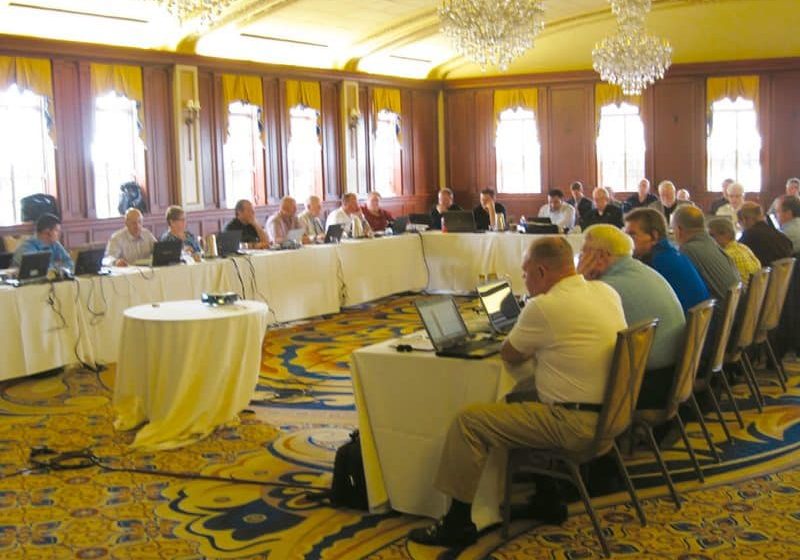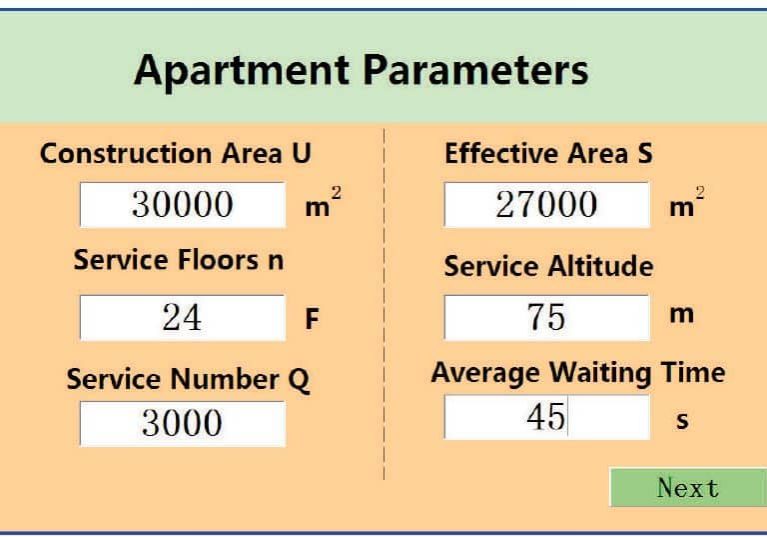Given the chance, industry veteran John Antona “would do it the same way all over again.”
Giancarlo “John” Antona is president of IGV Elevator US, Inc. (ELEVATOR WORLD, April 2015) and president of Vertical Transport Technology Corp. (VTT). He is Italian in origin, born in Addis Ababa, Ethiopia. He currently resides in Plantation, Florida, where VTT is headquartered. IGV Elevator US is based in nearby Miami.
Antona holds a four-year degree in Business Administration and studied Electrical Engineering for two years. While still in college, Antona was recruited by Schindler for training as a resident representative in Ethiopia. His training included administrative tasks, engineering, preparation of layouts, estimating and factory education. He was then given the Schindler distributorship for sales, installation and maintenance. Afterward, he founded and managed Mabrat Electrical, Technical & Trading Co. in Addis Ababa. His company soon became the largest electrical, mechanical, plumbing and elevator contractor in the country, designing, supplying, installing and maintaining MEP and elevator projects representing such manufacturers as Siemens for electrical components and Schindler for elevators. Antona reminisces:
“Many of the major buildings and industrial complexes built at the time were turnkey projects by Mabrat, e.g., Africa Hall, Agricultural & Industrial Development Bank, Ministry of P.T.T & G.P.O. Complex, Addis Ababa International Airport & C.A.A. Head Office, and many others. Business was good, and Mabrat employed over 300 people.”
Antona’s business contacts allowed him to travel extensively in Europe, East and North Africa. Fluency in French, Italian, Amharic and English helped in interacting with people in diverse environments.
“This is a great time for vertical transportation. Innovation and technical advances in the way buildings are designed and constructed will require similar advances in elevator orld.com • Atechnologyugust 2015.”
Antona feels his experience in Ethiopia helped him greatly, because it taught him how to survive and resolve problems in adverse conditions where mistakes could not be afforded. He also learned the importance of a supplier that could ship parts overnight or solve problems by phone. “Some of our large projects, such as power plants or factories, were located in remote areas that could only be accessed by flying private single-engine airplanes to solve a problem or have an onsite meeting,” he explained. With experience in overcoming these types of challenges, Antona felt that working in the U.S. was easy for him:
“It was just a matter of learning a new system and following well-established rules. Learning and improving on what you learn was very important. Common sense is essential. Hard work and dedication are a necessity.”
After immigrating to the U.S., Antona’s first employment began in 1978 as a Sales engineer for Dover Elevator Co. in Los Angeles. He was quickly promoted to Sacramento branch manager, then district manager in charge of Central and Northern California (except San Francisco). A few years later, he was promoted to regional service manager for the New York Region. After opening the company’s New York City (NYC) office, he was promoted to district manager of NYC.
Antona eventually left Dover to join U.S. Elevator Co. in 1991 as Southern California Zone Manager in charge of Los Angeles, surrounding counties, Orange County and San Diego. He then moved to Miami, where he briefly worked for Montgomery Elevator Co. When he then started his own company, VTT, in 1996, one of his first contacts was the City of Miami Beach, Florida, to be its chief elevator inspector. After working in this capacity for 16 years, he assumed his present role with IGV Elevator US, helping it open its new office in Miami.
“Elevators all over the world are used to move people in a safe and reliable manner, and I don’t see why we should requirements for special situations.”
Antona said he has worked with many great individuals who mentored and assisted him throughout a career filled with changing challenges and responsibilities. He explained:
“One person in particular is Robert Dieter, my boss and regional manager in New York. Additionally, building officials in Miami Beach, namely Philip Azan and Hamid Dolikhani, helped me overcome the transition from contractor to inspector and reverse my whole perspective of the building and elevator industry in the process. The best advice I received was ‘Learn how it’s done, and then become the best at it’ and ‘The art of being wise is the art of knowing what to overlook.’”
Antona also admires Ing. G. Volpe, founder of IGV. Of him, he remarked, “He is way past retirement age but still goes to work every day and contributes his knowledge and experience on all major policy decisions.”
As president of IGV Elevator US, Antona finds himself starting a new company with a new product within “a great Italian company managed by talented and professional individuals.” He sees his biggest challenge as establishing a group of distributors that are elevator professionals with a dynamic sales organization. He intends to do this by helping distributors and dealers understand the product they sell and providing them with the information needed to assist the architect, owner or general contractor in decision making. He also intends to provide quality-control inspections on all new installations to ascertain that the product installed meets IGV’s quality standards. Antona’s future goals for IGV Elevator US include effective management to grow it into an efficient, highly technical and reliable organization aimed at serving the public and assisting its distributors in providing safe and reliable equipment.
To those entering the elevator industry, Antona would advise:
“Elevators are designed in an office environment, manufactured in a factory and assembled onsite. To become an expert elevator person, you must understand and be able to explain the complete process. Someone considering getting into the elevator business today must also have exceptional knowledge of codes and regulations, as the safety of the riding public is protected by the application of such standards. One can hire experts in design, engineering, sales, installation and repair but must possess common sense and responsibility to ascertain that the safety of the riding public is never compromised.”
Speaking of the future, Antona opined:
“I would love to see a project with occupant evacuation elevators (OEEs) in operation (EW, July 2015). I see a bright future with faster, better-designed vertical-transportation systems. With the introduction of OEEs, I see a time when elevators will be used as a main means of egress and will have the ability to interact with the public. As the underdeveloped economies of the world progress and prosper, more buildings will be needed, and, consequently, more vertical transportation will be required.
“This is a great time for vertical transportation. Innovation and technical advances in the way buildings are designed and constructed will require similar advances in elevator technology. Meanwhile, older buildings will require modernization and repairs. The service base can only expand over time. IGV is well placed to take advantage of the future with innovative and progressive methodology.”
Antona belongs to the American Society of Mechanical Engineers (ASME) Inspections Committee and Regulatory Advisory Council, the International Association Elevator Engineers (IAEE) as U.S. Branch chairman, the Florida Elevator Safety Technical Advisory Council as council chair, NAESA International as certified elevator inspector supervisor, the Florida Department of Business and Professional Regulation Bureau of Elevators, the National Fire Protection Association and the National Association of Elevator Contractors (NAEC). While he feels the ASME committee meetings, NAESA workshops, NAEC exhibitions and IAEE Elevcon congresses he attends are very beneficial for meeting other industry representatives, he would like to start an Elevcon-type congress for professionals only.
Antona would also like to see change in the permitting and inspection process by placing more responsibility on elevator contractors. He would like to see technicians’ training regulated and qualified in a similar way to the European model. Finally, he would prefer less regulation between countries. He is a proponent of code standardization: “Elevators all over the world are used to move people in a safe and reliable manner, and I don’t see why we should not have a global elevator code with some local requirements for special situations.”
Antona is married to Kathleen, a retired Federal Bureau of Investigation special agent now working part time for the local police department and as a Yoga instructor. He has three children from a prior marriage, all born in Addis Ababa and living in California, New Jersey and central Florida. Antona has enjoyed the combination of taking on administrative and technical duties throughout his career, planning large projects with challenging solutions. To him, elevators are the most interesting and complex building components. His plans to continue working full time extend to three to five years, after which he intends to “move to a smaller town on the beach with beautiful sunsets.” He would also like to do volunteer work in underdeveloped countries one day and considers establishing an AHJ and assisting on safety regulations and processes.
Get more of Elevator World. Sign up for our free e-newsletter.










